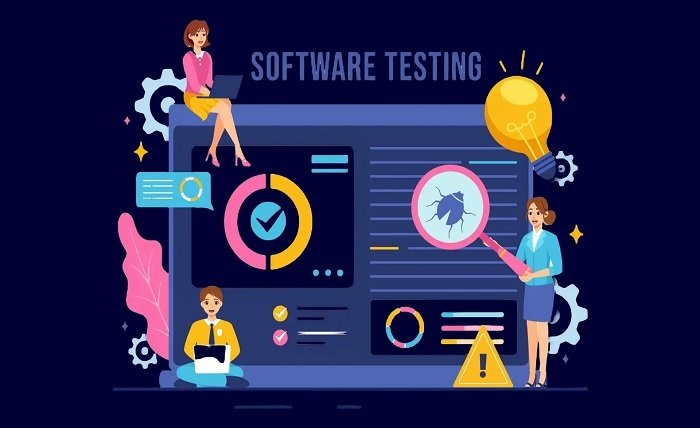Salesforce is among the most powerful, flexible, and widely used customer relationship management (CRM) software worldwide. However, due to its rapid iterations, intricate settings, and deep integrations, testing the Salesforce apps might become a tough nut to crack. That is why choosing the best Salesforce test automation tools is important to keep your Salesforce environment stable, compliant, and reliable. At the same time, the best tools can’t ensure success without a good foundation of software testing best practices.
Why Salesforce Testing Requires a Unique Approach?
Salesforce is unlike your simple web or mobile app, where you can update in one shot, as Salesforce is in a dynamic metadata-based architecture. Customizations such as workflows, validation rules, triggers, Apex classes, and Lightning components must be checked between sandboxes and production.
Common Salesforce testing challenges include:
- Frequent platform upgrades and seasonal releases
- Custom development using Apex and Visualforce
- Complex integration with external systems via APIs
- Varying environments and user permissions
- UI changes with Lightning Experience updates
Manual testing in such a scenario is slow, error-prone, and difficult to scale. That’s why organizations turn to test automation tools that are built to work with Salesforce’s unique characteristics.
Key Features to Look for in a Salesforce Automation Tool
To select the right test automation tool for Salesforce, look for the following capabilities:
- No-code or low-code interface for easy authoring of business test cases
- Support for dynamic objects and component-based UI in Lightning
- Ability to test across multiple Salesforce instances and sandboxes
- Integration with APIs, databases, and backend systems
- Compatibility with CI/CD pipelines like Jenkins and GitHub
- Smart locators that adapt to changing DOM structures
A great Salesforce automation platform should also support non-technical team members, such as business analysts or Salesforce admins, in creating and executing tests natively (not through written scripts).
The Role of ACCELQ in Salesforce Test Automation
ACCELQ is the best codeless test automation platform purpose-built for Salesforce testing. It provides natural language test authoring, built-in support for Lightning components, and deep integration with Salesforce environments.
Key capabilities of ACCELQ for Salesforce:
- No-code test design tailored to Salesforce workflows
- Intelligent object handling for dynamic Lightning components
- Real-time change impact analysis for seasonal release readiness
- End-to-end testing across Salesforce, APIs, databases, and third-party apps
- Built-in traceability from user stories to test cases and results
Companies that use ACCELQ for Salesforce testing can build their tests up to 70% faster and maintain them up to 60% less time, allowing QA and engineering to work on strategic activities, not maintain the tens of thousands of tests in their suite.
Software Testing Best Practices for Salesforce Projects
Even with the best automation tools, following proven testing practices is essential for maintaining test reliability and application performance.
Here are some key software testing best practices for Salesforce:
- Define clear test scenarios aligned with business processes
- Maintain separate test environments for integration and UAT
- Use data-driven testing to validate different configurations and rules
- Prioritize regression testing after every seasonal release
- Track defects and test results with traceability back to requirements
- Incorporate shift-left testing by involving QA in sprint planning
- Ensure accessibility and cross-browser compatibility where relevant
These practices reduce the risk of broken workflows and compliance issues during production deployments.
Example: Automating a Lead Conversion Flow
Consider a lead conversion workflow in Salesforce. This involves converting a lead into an opportunity, account, and contact. A manual tester would have to repeatedly click through multiple forms and validations.
With ACCELQ:
- The test is written in plain English, describing each business step
- Data sets are reused for different scenarios (e.g., qualified vs unqualified leads)
- Lightning-specific locators ensure consistent execution across UI changes
- The test is automatically run in Jenkins with results pushed to Jira
This not only ensures consistent validation but also gives teams faster feedback and fewer release blockers.
Conclusion
Salesforce testing isn’t just testing fields and clicks. Ideally, it’s validating that key business processes work and continue to work every time in a highly configurable and increasingly complex environment. Selecting the most efficient Salesforce test automation tools and pairing them with good practices in software testing will make your QA strategy the right fit for your needs, and also scalable and future-proof in times of change.
Platforms like ACCELQ are designed to transform how teams can deliver faster, work more intelligently, and coordinate more effectively without necessarily ever having to code. With proper skills and tools, which is a different story, Salesforce automation can become an edge over competitors, rather than a bottleneck.
